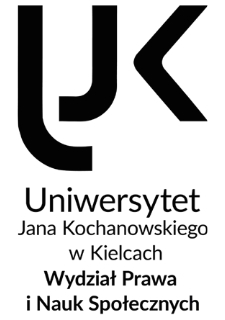Digital Library of the Jan Kochanowski University contains 13 466 digital objects
Object
Title: Konstytucyjne prawo do składania skarg i wniosków i jego realizacja w ustawodawstwie zwykłym
Creator:
Alternative title:
Abstract:
Prawo do wnoszenia skarg, wniosków i petycji do organów władzy publicznej oraz innych instytucji i organizacji społecznych, w związku z wykonywanymi zadaniami zleconymi z zakresu administracji publicznej, zagwarantowane jest w art. 63 Konstytucji RP. Oparte jest ono na zasadzie powszechności, a zatem odnosi się nie tylko do obywateli, ale również obcokrajowców i bezpaństwowców oraz pełni wiele funkcji, w tym m.in. funkcję gwarancyjną. Postępowania w sprawach skarg i wniosków, uregulowane ustawami, charakteryzują się odformalizowaniem, jednoinstancyjnością i zasadniczo brakiem kontroli sądowej. W niniejszej pracy uwzględniono dwie płaszczyzny rozważań, tj. konstytucyjną i ustawową. Autor podjął próbę określenia zakresu podmiotowego i przedmiotowego, funkcji oraz dopuszczalnych ograniczeń prawa do składania skarg i wniosków w świetle unormowań Konstytucji RP oraz poszukiwał odpowiedzi na pytanie, w jakim stopniu ustawodawstwo zwykłe realizuje konstytucyjne prawo do składania tych wystąpień. Rzutuje to bowiem na ustalenie, czy aktualny zakres uprawnień procesowych skarżących oraz wnioskodawców w ramach prowadzonych postępowań jest wystarczający i zgodny z Konstytucją RP, czy wymaga sformułowania stosownych postulatów de lege ferenda. Głównym problemem badawczym pracy jest wykazanie, że ustawowa regulacja instytucji skarg i wniosków nie realizuje w pełni konstytucyjnego prawa do składania tych wystąpień.
The right to submit complaints, motions and petitions to public authorities and other institutions and social organizations in connection with the performance of tasks commissioned in the field of public administration is guaranteed in art. 63 of the Constitution of the Republic of Poland. It is based on the principle of universality, and therefore applies not only to citizens, but also to foreigners and stateless persons, and performs many functions, including guarantee function. Proceedings on complaints and motions, regulated by statutes, are characterized by deformalisation, single-instance proceedings and basically no judicial review. In this PhD thesis, two levels of consideration were taken into account, i.e. constitutional and statutory. The author made an attempt to determine the subjective and objective scope, functions and acceptable limitations of the right to submit complaints and motions according to the provisions of the Constitution of the Republic of Poland, and sought an answer to the question to what extent ordinary legislation implements the constitutional right to submit these applications. This has an impact on determining whether the current scope of procedural rights of the complainants and applicants in the course of the proceedings is sufficient and consistent with the Constitution of the Republic of Poland, or whether it requires the formulation of de lege ferenda postulates. The main research problem of this project is to show that the statutory regulation of the institution of complaints and motions does not fully implement the constitutional right to submit these applications.
Additional notes:
Streszcz. ang. Zawiera bibliografię
Identifier:
oai:bibliotekacyfrowa.ujk.edu.pl:12028
Computer catalogue:
Language:
Degree name:
Date obtained:
Degree grantor:
Uniwersytet Jana Kochanowskiego w Kielcach
Supervisor:
Przywora, Bogusław (1982- ) Wójcicka, Ewa. Promotor pomocniczy
Reviewer:
Grzybowski, Marian ; Rytel-Warzocha, Anna Syryt, Aleksandra
Field:
Scientific disciplines:
Faculty:
Wydział Prawa i Nauk Społecznych
Type:
Access rights:
tylko w Oddziale Informacji Naukowej
Publication status:
Object collections:
Last modified:
Jan 29, 2026
In our library since:
Jul 31, 2024
Number of object content hits:
0
All available object's versions:
https://bibliotekacyfrowa.ujk.edu.pl/publication/12659
Show description in RDF format:
Show description in OAI-PMH format:
| Edition name | Date |
|---|---|
| Dolny, Jarosław, Konstytucyjne prawo do składania skarg i wniosków i jego realizacja w ustawodawstwie zwykłym | Jan 29, 2026 |

